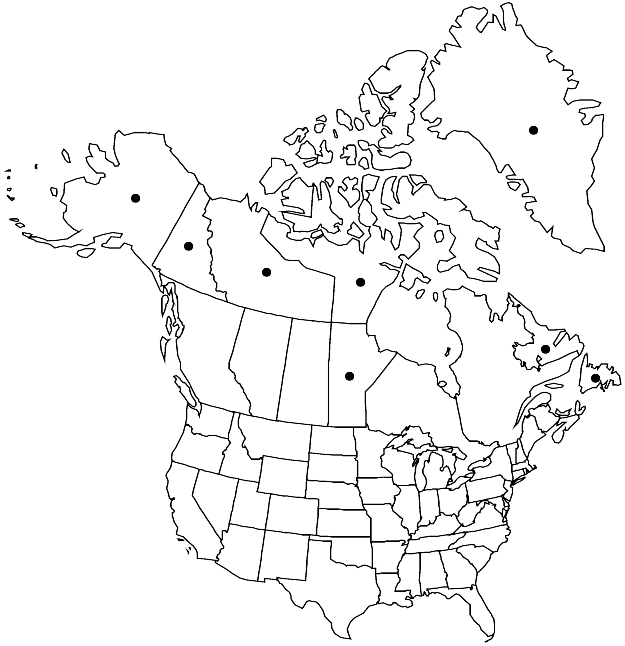Ptychostomum salinum
Phytologia 87: 22. 2005.
Plants in dense or open turfs, green or yellow-green. Stems 1–2(–3) cm, comose, innovations comose or somewhat elongate and evenly foliate; not strongly radiculose. Leaves green, twisted to contorted when dry, ovate-lanceolate, flat to weakly concave, (0.5–)1–2(–3) mm, enlarged toward stem apex; base weakly decurrent; margins revolute to mid leaf or beyond, limbidium strong, in 2 or 3 rows; apex acuminate; costa short- to long-excurrent, awn straight, ± smooth; proximal laminal cells 3–4:1, same width or sometimes wider than more distal cells; medial and distal cells rhomboidal, 16–20 µm wide, 2–3:1, walls usually thin to firm. Specialized asexual reproduction absent. Sexual condition synoicous. Seta 1–2(–3) cm. Capsule brown, elongate-pyriform, symmetric, 2–4 mm, mouth yellow; operculum long-conic, distinctly apiculate; peristome well developed; exostome teeth yellow basally, hyaline distally, lamellae usually straight mid tooth, 1–2(–3) small pores present along mid line at base of tooth; endostome not adherent to exostome, basal membrane high, 1/2 exostome height, segments with broadly ovate perforations, cilia short, rudimentary. Spores variable in size, (18–)22–30 µm, finely papillose, pale yellow-brown.
Phenology: Capsules mature Jul–Sep.
Habitat: Damp soil near ocean in arctic tundra
Elevation: low to moderate elevations (0-500 m)
Distribution

Greenland, Man., Nfld. and Labr., N.W.T., Nunavut, Yukon, Alaska, Eurasia.
Discussion
Ptychostomum salinum is a circumpolar arctic-boreal species similar to P. creberrimum and P. pallescens in habit, but the plants are smaller and have a strongly reduced peristome. The small pores at the base of the mid line of the exostome teeth and the large spores are diagnostic. Spore size varies considerably in some capsules for unknown reasons.
Selected References
None.